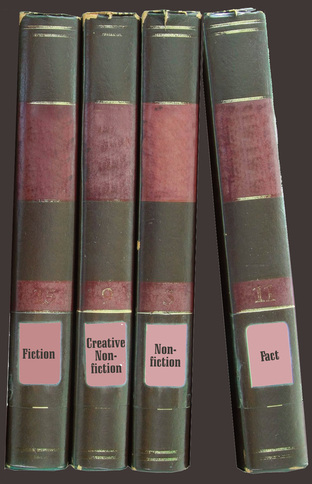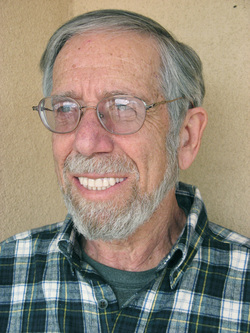
So what’s in the middle? It’s this thing called “creative nonfiction.”
And the definition? The parameters? Well, that shifts back into this sphere of fuzziness referred to above.
Rule No. 1 is that you can’t make things up. So that’s what you start with: facts. This earns you the freedom to fancy up those facts with “the techniques of fiction.” The antithesis is the encyclopedia; the model is the novel, or at least the short story.
Build your tale around scenes (which is the basis of “show, don’t tell” anyway). Dialogue, description, detail all become bricks that add the “creative” to your structure. But what’s become the essential element is point of view—the writer’s individual “voice,” unique and unlike the way anyone else would tell the same story.
Done right, what results is vivid, compelling, a work as enthralling as the best fiction. But as we sit hunched over the keyboard—immersed in information, struggling to shape it—that first step we take on the slippery slope can be mighty hard to notice. Of course, there’s no license to lie. But how seductive the little white kind can be! (I’m only changing the quote a bit to make the point he intended. I’m simply clarifying what she must have been thinking.)
It’s been a long time now since quantum physics taught us that data can’t be gathered independent of the person doing the gathering. But if I, the writer, need to be some part of what I’m writing, what part is the right part? Just because the fellow I interviewed is a sleaze and an asshole, I don’t get a permit to flatly say that. Instead, I need to subtly guide my reader to the same conclusion through selective inclusion, exclusion, editing (manipulation? distortion?) of his words. That’s being “creative,” right?
Recent years have been generous with sad examples of writers convinced by hubris that all it took to make their fictions “fact” was to label it that. But for each one of those unmasked, how many still fool us?
Back a bunch of decades ago when the newspaper business was giving me paychecks, its Bible was “objectivity.” Eventually folks realized humans were as capable of achieving this as reaching the moon by flapping their arms. Then the mantra became “fairness”: We lay out all the relevant facts and opinions, and readers will magically assemble from them the real-world knowledge they need. It sounds like a wonderful idea—simply do an easy values-otomy on the disseminators of those facts and opinions, a careful surgical incision to remove all personal attitudes toward the information as well as all desire and power to make judgments. Sure gets my vote!
So where does this all leave us when we start a book of nonfiction, creative or otherwise? As readers, I’d hope it’s in the armchair of the skeptic while we turn those pages (physically or electronically), knowing the writer did her or his best in the doomed effort to transcend bias and imperfection. And as writers, we’re in exactly the same place as the people we see pushing the rock up that Sisyphean hill to give the world the gifts of peace, justice, and compassion: Likely to succeed or not, we’re all just doing what we have to.
This, I guess, is the inherent advantage fiction has over nonfiction: Fact doesn’t have to get in the way of truth. I’ve seen creative nonfiction called “the literature of reality,” and I like the phrase. Nevertheless, the idea of an absolute reality equally perceivable to everyone on Planet Earth seems pretty fictitious to me. But your reality and my reality and his reality and her reality and those other folks’ reality just might add up to a semblance of the way things actually are that’s as close as we can humanly come—if each of us is alert and aware enough to see it. Given the limits the metaphorical God built into our species, it’s probably the best we can do.

 RSS Feed
RSS Feed

